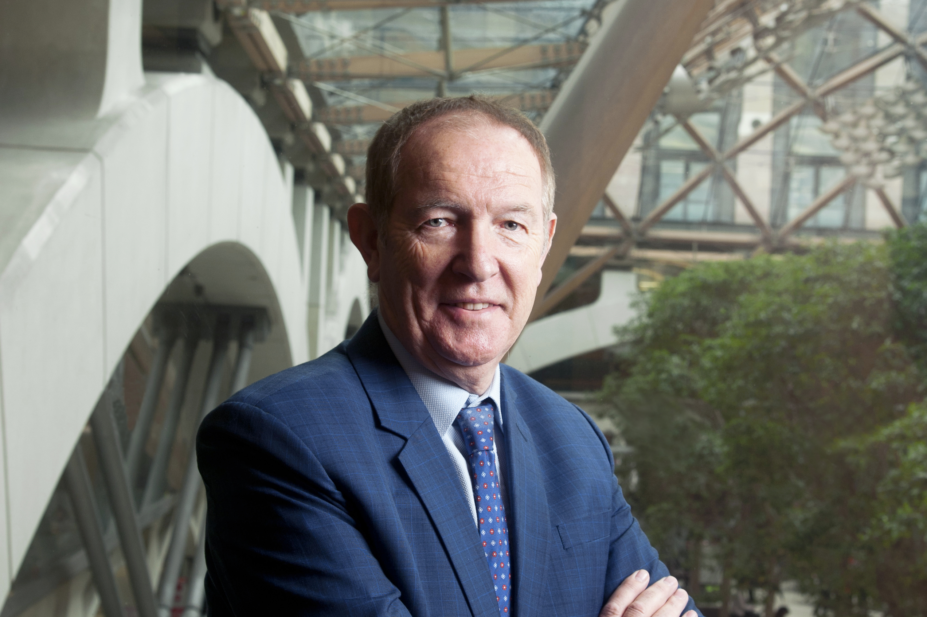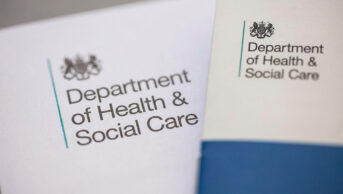
Charlie Milligan
The chair of the All-Party Parliamentary Group (APPG) on Pharmacy and MP for South Yorkshire’s Rother Valley is “totally fed up” of politicians’ ideologies around the Brexit debate. As one of a handful of Labour Party rebels who voted in favour of prime minister Theresa May’s Brexit deal, Sir Kevin Barron says he just wants parliament to “get this thing sorted out”.
This pragmatic, no-nonsense attitude is certainly not just limited to Brexit. Sir Kevin wrote to health minister Steve Brine in February 2019 urging the government to pass the extension of dispensing errors legislation from community pharmacists to the rest of the profession sooner rather than later — effectively telling him to “get on with it”. Although the request was declined by Brine, Sir Kevin is nothing if not persistent when public health issues are at stake.
A member of 17 committees in his 35 years as MP for Rother Valley, Sir Kevin has maintained a consistent interest in the NHS and public health. In 1993, he put forward a private members bill to ban the advertising of tobacco products and, in 1996, he was made shadow minister for public health.
Since then, he has remained an influential parliamentary voice as a member of the Labour Party Health Committee, the Health Select Committee and as chair of two APPGs; on the pharmaceutical industry and smoking and health.
If you’re going to change things, change it for the good and get it right
In June 2017, you said in a parliamentary speech that community pharmacy has been “
treated in a shoddy manner”. How has that changed in the past 18 months?
I was hoping it would change dramatically, but there’s been a delay in the new community pharmacy contract, which I think is a great shame. With that said, if you’re going to change things, change it for the better and get it right. I would hope that that is going to be the case now.
Has the government’s view of community pharmacy changed at all for the better?
I think it has. I would like to see us moving into service areas, and the members of the APPG would agree too. I know that community pharmacy is a very small part of our NHS but, overall, more than 70% of the money we spend on the NHS in this country is on long-term conditions.
Getting to see a GP is not as easy as it used to be, but getting to see a pharmacist is easier
Quite a lot of the time, someone with a long-term condition will end up in a hospital because they haven’t been taking their medicines as advised. As a consequence, that issue is a big thing for the taxpayer. Who is better to deliver that care than a pharmacist, whose door is open most of the time?
Getting to see a GP is not as easy as it used to be, but getting to see a pharmacist is easier. That’s what I would like to see — pharmacists looking at lifestyle issues.
What should the top priority be for pharmacy when negotiating a new pharmacy contract with the government?
I think we have to move away from the current model. I recently visited a pharmacy in Rotherham that supplies social care homes in South Yorkshire — the number of returns of drugs, which are still within date but have to be destroyed, must run into thousands of pounds.
It’s about having the ability to be able to use the medicines appropriately. The great problem at the moment is that pharmacists get paid for doing that — not for wasting the drugs, not for wasting the drugs, which is effectively what happens. We need to get to the bottom of that.
Let’s look at how to reward community pharmacy for running more efficiently and not creating waste
At the moment, the prescribing of medicines keeps the system going — keeps the income coming in. How can we get a community pharmacy contract that recognises that? Maybe pharmacy should be rewarded for stopping and avoiding waste.
How will that mesh with the government’s priorities for the profession?
The government needs to be brave and say, “OK, we have a structure that is probably not fit for purpose now” and move it into the service sector, giving people advice about their lifestyle. Managing patients’ conditions is something that ought to be rewarded.
Let’s look at how to reward community pharmacy for running more efficiently and not creating the waste that we all see and hear about. That’s the challenge to the government.
How far will the ‘NHS Long Term Plan’ go in changing the structure to mitigate that?
It did say in part that they’re going to look at medicines waste.
One of the crucial issues about long-term planning is going to be around patient records and sharing these records with other primary healthcare professionals. They should be linked up to make sure that a patient’s pathway is steered by professional people who can help them in the right and proper way. If we don’t, we will never avoid people crashing into A&E and into hospital beds.
Just churning prescriptions over as a means of income is a great loss
What kind of role do you think community pharmacy will have after the big push to include pharmacists in primary care networks in the ‘NHS Long-Term Plan’?
Community pharmacists should have a bigger role than they have now. Just churning prescriptions over as a means of income is a great loss. There is no reason why community pharmacies can’t work with GPs as well — and that does happen. What we need to have is people doing jobs that they are capable of doing.
A Digital Minor Illness Referral Service expansion has been confirmed subject to contract negotiations, but will an extension to the NHS Urgent Medicine Supply Advanced Services pilot follow suit?
I’m not party to those conversations, but it’s interesting that the government is looking at regulations about how pharmacists could move patients on to other drugs or to generic drugs following a serious shortage protocol. There’s all sorts of issues in that, but at least it recognises the worth of pharmacists and their professionalism at being able to look at compounds and at which drugs are right for which patient.
The APPG is concerned about shortages. Prescription drugs need to be managed in a better way. Who’s responsible for getting the drugs into the local community pharmacy? Who holds them in the warehouse? With IT in this day and age, you’d think we’d be able to manage these things a lot better.
Steve Brine rejected your calls for the dispensing errors legislation to be pushed through, as Brexit legislation is taking up all the parliamentary time. What does this mean for patient safety in the meantime?
I despair a little bit, quite frankly, because we’ve had this on the way for years now.
I chaired the Health Select Committee when the Labour Party was last in office and we published a report on patient safety. We had someone from the British Airline Pilots Association and he said, “every mistake that we make is reported because that is the way you learn lessons”. Nobody should be frightened about that.
The government should get on with the dispensing errors legislation and it should become part of pharmacists’ professional life.
Britain could still leave the EU without a deal. In a statement on your intention to vote for Theresa May’s deal you described this as “a horror”. What would a no-deal Brexit look like for frontline pharmacists?
Potentially it could have a major impact if we don’t have a Brexit that I would call a ‘soft landing’, that recognises the merits of major parts of the customs union, that recognises that it’s not just about trade between us and the EU, its also about trade throughout the world.
I just don’t know what a no-deal Brexit means
What we need to make sure is there’s no major disruption that’s going to cause problems for patients and the supply of over-the-counter drugs as well. We’ll only know that when this institution, which I’ve been in for the past 35 years, decides to take some sensible decisions about how we get there.
I just think we should get on with it to stop people worrying about whether or not they are going to get their drugs.
What would a no-deal Brexit mean for importing these drugs?
I really couldn’t say. I just don’t know what a no-deal Brexit means.
Why then have you ruled out supporting a second referendum to avoid that uncertainty?
Someone I used to work with said, “I don’t know why they want a second referendum because they haven’t implemented the first one yet”. And I agree with him. I’ve gone from a remainer to somebody who thinks we should get on with it and get this thing sorted out in the best interests of this country.


